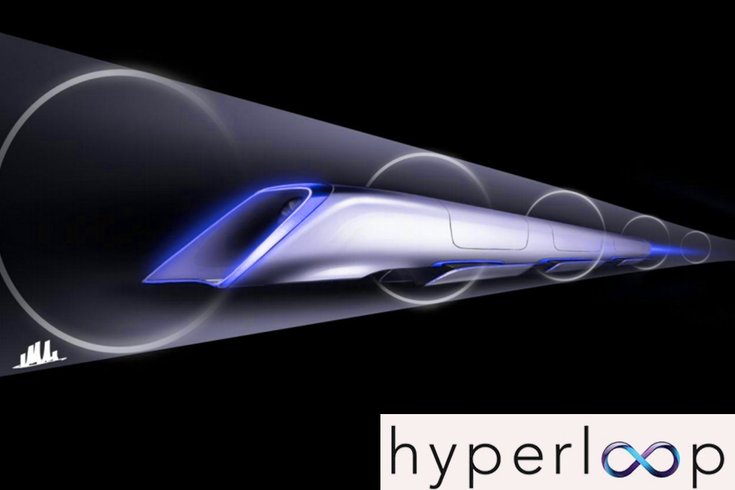
March 11, 2019
 Source/Hyperloop/SpaceX
Source/Hyperloop/SpaceX
Hyperloop passenger transport capsule conceptual design rendering.
Elon Musk's futuristic vision for hyperloop transit could be in the works for a Pennsylvania route between Philadelphia and Pittsburgh.
The Pennsylvania Turnpike Commission has awarded a $2 million contract for a feasibility study on a cross-state hyperloop tunnel, with additional stops in Harrisburg and Wilkes-Barre/Scranton.
Hyperloop technology, led by Musk's Boring Company, relies on magnetic levitation to propel pods through low-pressure tubes at speeds up to 700 mph. That's about 10-15 times faster than traditional rail and 2-3 times faster than high-speed rail or magnetic levitation trains, which are also under consideration in the Mid-Atlantic and Northeast.
A hyperloop tunnel would theoretically cut the 320-mile trip between Philadelphia and Pittsburgh to under a half-hour.
"As new technologies and methods of transport are contemplated, Pennsylvania has a unique opportunity to once again be a leader and innovator," Pennsylvania Rep. Aaron D. Kaufer wrote last fall in a memorandum for a House Resolution on the study. "Sure, autonomous vehicles are changing the landscape of how we view everyday highway travel, but, at the end of the day, transportation via automobile is slow, costly, dangerous and environmentally unfriendly."
The PUC contract will go to Aecom Technical Services Inc., which built Elon Musk's hyperloop test track in 2016. Aecom will provide preliminary planning, engineering and support services.
In 2017, Musk claimed he had received verbal government approval for a hyperloop between New York, Philadelphia, Baltimore and Washington, D.C. Those cities disputed Musk's bold assertion and no government authority ever came forward to back up the entrepreneur's declaration.
Other transportation agencies around the country have sought similar studies to determine the viability of hyperloop systems, which would dramatically reshape freight transportation and travel.
Other companies, including Virgin Hyperloop One and Hyperloop Transportation Technologies, also have been prototyping hyperloop projects in Las Vegas and France, respectively.
Testing for current hyperloop tracks and projects has been ongoing for the past two years. Musk's plan to debut his subterranean test tunnel in Hawthorne, California, fell through last fall when community groups sued Los Angeles for exempting the project from an environmental review process.
The feasibility of a Pennsylvania hyperloop will depend on a range of factors including geography, demand and the estimated costs for tunnel construction, still an unknown variable for large-scale projects.
The upcoming study will examine the impact a hyperloop system would have on existing rail and aviation systems throughout Pennsylvania, as well as the possibility of connecting the hyperloop with other projects under consideration in Chicago and Columbus, Ohio.